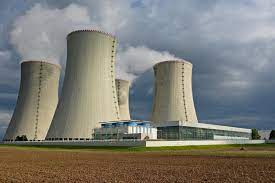The South African government recently unveiled plans to incorporate nuclear energy into its strategy to resolve the nation’s persistent electricity issues. Minister of Electricity and Energy, Kgosientsho Ramokgopa, emphasized that the deployment of nuclear energy would proceed at a pace that aligns with South Africa’s financial capabilities. This announcement comes on the heels of South Africans experiencing an uninterrupted 100-day power supply.
In March 2023, President Cyril Ramaphosa took a decisive step by creating a new cabinet office and appointing Kgosientsho Ramokgopa as the Minister of Electricity and Energy. The move was part of a broader effort to address the country’s longstanding energy crisis, which frequent blackouts and insufficient power supply have characterized. Ramokgopa’s mandate includes managing the immediate power shortages and ensuring the sustainability of South Africa’s energy infrastructure.
The recent success of reaching 100 days without any load-shedding is a testament to the effectiveness of the recovery plan initiated in March 2023. Eskom Holdings SOC Ltd., the state-owned power utility, credited this milestone to the aggressive maintenance and improvement of the company’s power plants. These efforts have significantly contributed to stabilizing the electricity supply, providing much-needed relief to businesses and households alike.
Considering nuclear energy as a viable option underscores the government’s commitment to diversifying its energy mix. Nuclear power, known for its reliability and low greenhouse gas emissions, could play a crucial role in ensuring a stable and sustainable energy future for South Africa. However, Ramokgopa stressed that the development of nuclear facilities would be undertaken cautiously, taking into account the country’s economic constraints and ensuring that projects are financially viable.
South Africa’s move towards nuclear energy is part of a broader global trend of exploring alternative and renewable energy sources. As the world grapples with climate change and the need for sustainable development, many countries are re-evaluating their energy strategies. For South Africa, the integration of nuclear energy could potentially reduce its reliance on coal, which currently dominates its energy landscape and contributes significantly to environmental pollution.
In addition to nuclear energy, South Africa continues to invest in other renewable energy sources such as wind, solar, and hydroelectric power. The government’s holistic approach aims to create a balanced and resilient energy system that can meet the demands of its growing economy while minimizing environmental impact.
The journey towards energy stability and sustainability is a complex and multifaceted challenge. South Africa’s recent achievements and plans reflect a proactive stance in addressing these issues. By exploring all available options, including nuclear energy, the country aims to build a robust energy infrastructure that supports economic growth and improves the quality of life for its citizens.
As South Africa progresses with its nuclear energy plans, the global community will be watching closely. The country’s experience could provide valuable insights for other nations facing similar energy challenges. With continued focus and strategic planning, South Africa hopes to turn its energy woes into a story of innovation and resilience.
